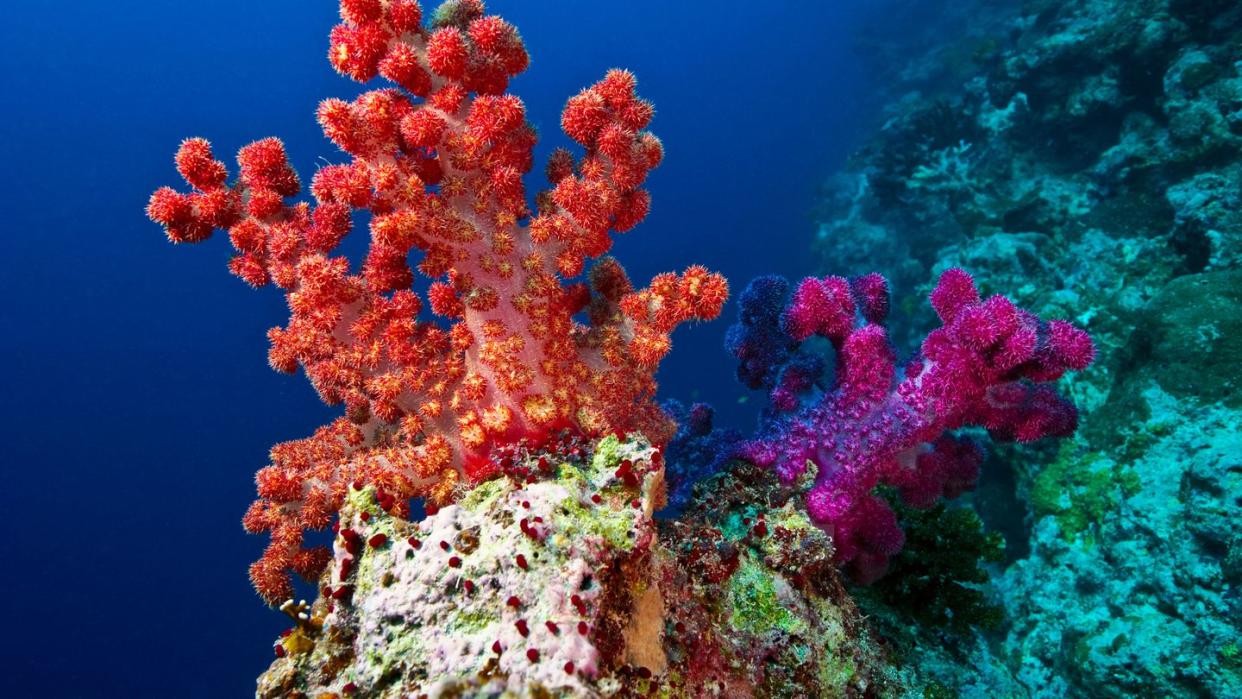Scientists Are Building a Noah’s Ark for Corals

The world is currently experiencing a global bleaching event only eight years removed from the last one, and scientists are rushing to save numerous species.
One effort includes a “Noah’s Ark” for corals—executed by placing rare, threatened species in aquariums in Europe as part of the World Coral Conservatory Project.
While these efforts, along with things like cryopreservation and selective breeding, will help corals around the world, the only real solution is a rapid reduction in greenhouse gas emissions.
Scientists around the world are preparing for the worst-case scenario. Tucked away in the northern Norwegian island is the Svalbard Seed Vault, dedicated to backing up seeds stored in global genebanks. In San Diego, the city’s world-famous zoo has more than 10,000 cell cultures from 1,000 taxa cryopreserved in its Frozen Zoo. And now, aquariums throughout Europe are working together to preserve another vulnerable lifeform—corals.
On Monday, the Royal Burgers’ Zoo (“burger” is “civilian” in Dutch) in Arnhem, Netherlands placed its first rare corals in its aquarium known as the Burgers’ Ocean, which holds 2.1 million gallons of water and is home to the largest living coral reef in Europe. These rare corals are part of the World Coral Conservatory project, an international pilot project working alongside other museums and aquariums in France and Monaco.
Founded in 2022, the World Coral Conservatory isn’t locking these animals behind glass for good, but hopes to keep them safe in an effort to restore them to their natural habitats in the future. Because the participating aquariums know the location of these corals—a coral atoll known as Aldabra in Seychelles (a UNESCO World Heritage Site)—these specimines can hopefully return to their environment in the coming years. This extreme measure to preserve corals is necessary, as they face many environmental and anthropogenic pressures that threaten their survival, including pollution, coastal development, dredging, and blast fishing (which is exactly what it sounds like).
“This project is making a kind of back-up of corals so in case they die out in the wild, we’ll still have them in aquaria,” Nienke Klerks, a biologist at the Royal Burgers’ Zoo, said in an interview with Reuters. The zoo is comparing its aquarium to a kind of Noah’s Ark, designed to protect species in the face of potential calamity.
However, the most insidious of these 21st century dangers is global warming, which causes temperatures in the oceans to rise. Because greenhouse gasses are trapping heat radiated off the planet’s surface, the world’s oceans are absorbing more heat. This is especially true of the ocean’s euphotic zone, where light can still penetrate water. Because corals needs a lot of light, they’re restricted to this heavily climate change-impacted zone, which is causing them to bleach. Corals form a symbiotic relationship with algae, but when stressed by warm temperatures, algae leave the coral behind. Without its major food source, corals turn white, or bleach, and become more prone to disease.
The world is currently experiencing the fourth global bleaching event in recorded history, and the second such event in the past decade. It takes corals many years to recover from bleaching, so having two global bleaching events so close together spells doom for this incredible underwater realm going forward.
While storing corals in various aquariums—and employing other methods for protecting these organisms, including cryopreservation and selective breeding—will help habitats in various locations, there is only one clear solution for saving the world’s coral reefs.
“That is a triage-type of response—a last-ditch response,” Julia Baum, a biologist and coral reef researcher at the University of Victoria in Canada told PBS Newshour last week. “Undoubtedly, the only thing that is going to save the world's coral reefs at this point is a rapid reduction in greenhouse gas emissions. That is absolutely certain.”
While “Noah’s Arks” will help preserve diversity in the short term, the species will eventually want to get off the ark, and it’s up to us to make a world where that’s possible.
You Might Also Like

